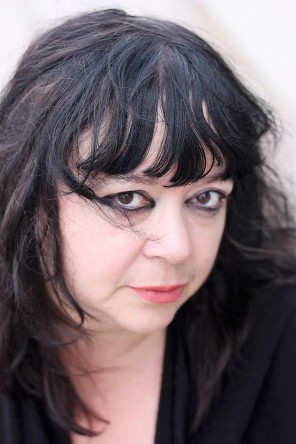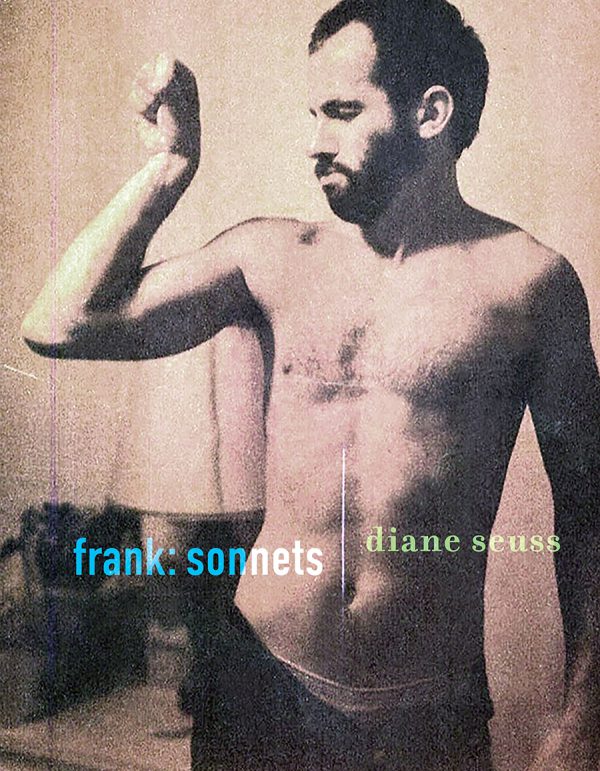
Professor Emerita Diane Seuss has received
the Pulitzer Prize in Poetry for “frank:
sonnets.” Photo by Gabrielle Montesanti

poetry, “frank: sonnets,” in 2021.
Kalamazoo College alumna, Professor Emerita and former writer-in-residence Diane Seuss ’78 is celebrating more recognition for her latest poetry collection, and this honor is the most prestigious yet.
Seuss was granted a 2022 Pulitzer Prize in Poetry on Monday for frank: sonnets, a collection of poems that discuss topics including addiction, disease, poverty and death. The collection previously received the PEN/Voelcker Award for Poetry Collection, the National Book Critics Circle Award for Poetry and the LA Times Book Prize for poetry.
The Pulitzer Prize committee described frank: sonnets as “a virtuosic collection that inventively expands the sonnet form to confront the messy contradictions of contemporary America, including the beauty and the difficulty of working-class life in the Rust Belt.”
“This is nothing that I would ever, ever, ever have expected of life,” Seuss said of the honor in an MLive interview. “It’s hard to feel these things beyond kind of shock and awe.”
In previous honors, Seuss received the John Updike Award in 2021 from the American Academy of Arts and Letters. The biennial award recognizes a mid-career writer who demonstrates consistent excellence. Seuss also joined a prestigious group of scholars and artists who have received grants from the Guggenheim Foundation as a 2020 Guggenheim Fellow. The fellowship helps honorees slate blocks of time during which they explore their creative freedom. The Foundation receives about 3,000 applications each year and awards about 175 fellowships.
Seuss retired from K in 2016, the year she was a Pulitzer finalist for Four-Legged Girl (Greywolf Press, 2015), a poetry collection the Pulitzer committee described as “a richly improvisational poetry collection that leads readers through a gallery of incisive and beguiling portraits and landscapes.” Her other collections include Still Life with Two Dead Peacocks and a Girl (Graywolf Press, 2018), a finalist for the National Book Critics Circle Award and the LA Times Poetry Prize; Wolf Lake, White Gown Blown Open (University of Massachusetts Press, 2010), which received the Juniper Prize; and It Blows You Hollow (New Issues Press, 1999).
“For me and others like me, people in the margins for whatever reason, such recognition is an encouragement,” Seuss said of her recent success in a Kalamazoo College news story last month. “It’s saying, your work has worth. It makes all the difference to be seen and heard and acknowledged.”
